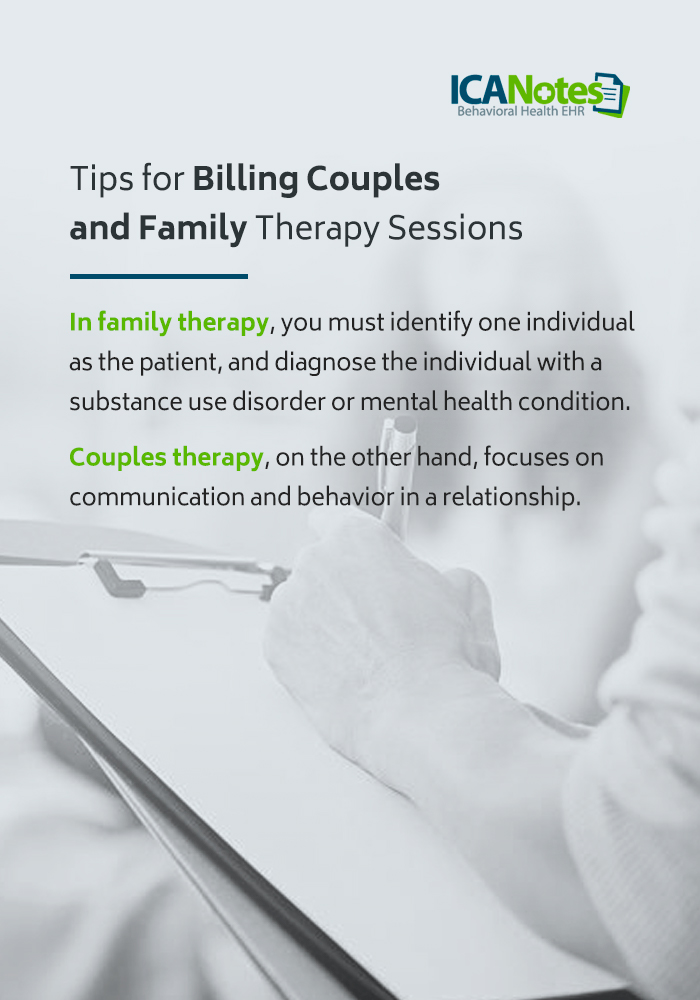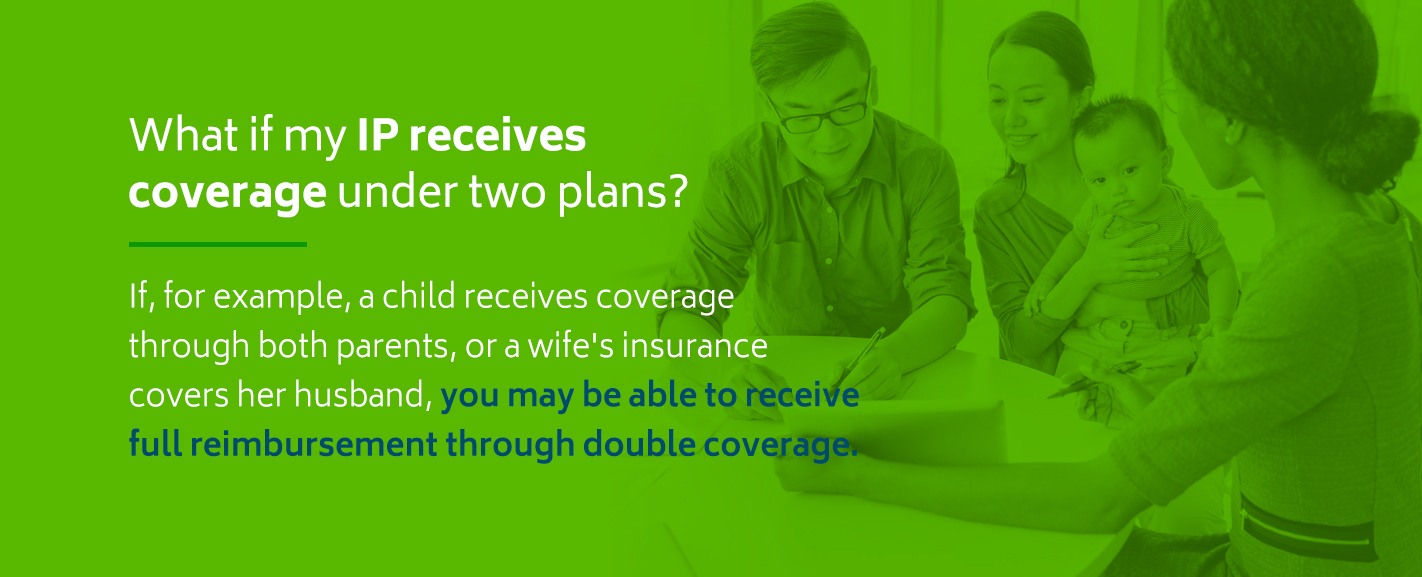Mental & Behavioral Healthcare Billing: How to Maximize Your Reimbursement Rate
As someone who works in behavioral health care, you entered the profession because of a desire to engage with and help heal patients, not spend all your time on paperwork. However, billing is one of the most critical skills needed to succeed in the field. Whether you're a psychiatrist, psychiatric nurse practitioner, psychologist or counselor, you've probably experienced at least one situation in which you couldn't get an insurer to pay out on a claim and had to take the loss.
Unless you work in a practice with a dedicated billing and coding specialist, you likely handle billing and compensation yourself, and any professional will admit this can be frustrating. If you're struggling to maximize your insurance reimbursement for mental health services, you're not alone. The following guide will provide you with some helpful tools, tips and tricks to help ensure you get the maximum payout every time.
Table of Contents
- Why Maximize My Reimbursement?
- Tips for Boosting Your Behavioral Therapy Reimbursement
- Frequently Asked Questions About Behavioral Health Medical Billing
- Tips for Billing Couples and Family Therapy Sessions
- Frequently Asked Questions About Couples and Family Therapy Billing
Why Maximize My Reimbursement?
You might be wondering if it's valuable to work on maximizing reimbursement. Can the benefits outweigh the time and effort spent adjusting your habits and learning new strategies? The answer is an unequivocal yes. Here are the top three reasons to pivot toward reimbursement when improving your practice.
1. You'll Save Money
There's no doubt insurance reimbursement is critical to your practice's bottom line. If your practice is having a hard time staying afloat, spending some extra time brushing up on billing and codes is a worthy investment in the longevity of your business — even if you initially worry you might spend your time better elsewhere.
Even if your practice is in excellent financial health, there's nothing wrong with focusing on reimbursement. There are always things you can do to reinvest in the business, whether it's a couple of new chairs and an attractive plant to make patients more comfortable, or software to make you and your colleagues' jobs easier.
2. You'll Get More Efficient Over Time
It might initially feel overwhelming to sift through unfamiliar codes and insurer policies, but you won't feel like that forever. Maximizing your reimbursement comes with a steep learning curve, but with practice, you'll soon find yourself spending less and less time to get the same level of payout. Just like any other skill, billing becomes more efficient over time.
3. Your Patients Will Thank You
Your patients are just as worried about insurance reimbursement as you are, and in most cases, even more so. When you file a claim that gets denied or only partially reimbursed, you have three options: you can take the hit and absorb the loss, attempt to appeal the denial or try to get the patient to pay the difference. The first option is the worst for your practice's finances, and the second option doesn't always work — especially if there were mistakes on your part during the filing process.
The third option — expecting patients to pay for services insurance arguably should have covered — is the one that will lose you the most patients. Maximizing your reimbursement means patients can trust they don't have to worry about the stress of unexpected bills from denied medical claims.
Tips for Boosting Your Behavioral Therapy Reimbursement
It's one thing to agree your billing habits could use an upgrade, but how can you get started doing so? This series of tips provides actionable ideas that will earn you faster, more complete reimbursement for your mental health services.
1. Collect Payment Up Front
It can be notoriously difficult to get patients to pay their share of the financial responsibility. Once you have rendered services, patients are harder to get in touch with and may be less interested in settling their portion of the bill. When their portion is a $20 co-pay, a couple of unpaid bills won't break your reimbursement bank, but if you are providing services to uninsured patients, those expenses rack up quickly.
While you could wait until the collections phase of the revenue cycle, it's better to discuss financial options before the patient sets foot in your office. Open communication about the estimated payment responsibility is essential, and discussing it with the patient beforehand also opens the door to financial counseling that may help the patient. Collecting payments upfront reduces the amount of time and energy spent on collections.
2. Code Claims Cleanly
Clean claims are the ticket to getting correct reimbursement the first time. Any errors in a claim will likely raise red flags at the insurance company and may cause them to delay or deny payment. Sometimes, making a mistake on your billing codes will result in a lower rate of reimbursement that may or may not seem worth it to appeal.
One of the most significant challenges in clean coding is learning the different rules different carriers have related to codes. Issues with coding aren't the only reason insurance carriers deny claims, and these issues may go unaddressed when there is only a slight discrepancy between the rate you expected and the reimbursement you received. Cleaning up your codes can significantly increase your psychotherapy reimbursement rates from private insurance.
3. Determine the Need for Pre-Authorization
Most insurance companies don't require pre-authorization for essential services such as an intake session, office visit or therapy session. Some will automatically cover up to a certain number of visits without pre-authorization, then require authorization for the following sessions. Certain services, like psychiatric testing or substance use disorder services, require prior authorization under some insurance plans.
If your patient has an insurance plan with particularly restrictive authorization requirements and you administer a diagnostic test, you may end up holding the bill for a claim denied for lack of authorization. The bottom line is, you can't be sure unless you verify.
4. Verify the Patient's Insurance
You or someone on your team should be checking and verifying patient insurance information before the patient even arrives. Confirm member eligibility before every visit, even for established patients. Information is always subject to change, and it can be frustrating to find a patient has switched plans or carriers without telling you. Early verification will prevent this type of communication failure from leading to lost reimbursement and time.
Verifying information will help you code more cleanly, as well as get any prior authorizations necessary to proceed with treatment. It will also allow you to get information about co-pays, deductibles and co-insurance the patient has.
5. File Your Claims Quickly
From an organizational standpoint, it's critical to make sure you're getting your claims in on time. While some insurers, like Medicare, allow a period of a year to 18 months for you to submit your claims, taking that long to do so is not a good idea. Don't think of timely filing limits for insurance companies as deadlines to beat. The earlier you can submit a clean claim, the better. In some cases, timely filing could result in a more substantial reimbursement. Some companies will even allow you to file reimbursement claims in advance for some services.
It's also crucial to have a tracking system for the claims you have filed. Instead of sending claims off into the void, ensure you have a clear record of when they went out. That way, you'll know when you need to check in if the company is taking too long to inform you of its decision.
6. Know the Difference Between Denied and Rejected Claims
When there is an issue with an insurance claim you've submitted, you will receive either a denial or rejection of the claim. A denied claim is one the payer received and processed, but found to be unpayable. A denial generally includes an explanation. In many cases, you can fix any mistakes and appeal the denial, but this process can be time-intensive. That is just one more reason to make sure your codes are clean in the first place.
A rejected claim has not undergone processing because the insurer found one or more mistakes. Small clerical errors, like spelling a name wrong or entering an incorrect digit of the patient's ID number, are often the culprit with rejected claims. If an insurer rejects a claim, the company will return it to you for correction, and you can resubmit it easily because it never made it into the payer's system.
While denied claims take time and effort to overturn, fixing a rejected claim is usually relatively easy. You can use this information to prioritize which unpaid claims to pursue in a time pinch.
7. Take Robust Therapy Notes & Treatment Plans
Documentation is the name of the game when it comes to getting maximum reimbursement for behavioral health services. Due to strict privacy laws, most insurers don't regularly ask for access to therapy notes. If your billing practices get audited, however, having thorough documentation of your treatment methods and progress can save you from getting hit with a retroactive claim denial.
Thorough psychiatry and therapy notes, when prepared accurately, are one of the best ways to prove the treatment you provided was medically necessary. This proof is vital, as insurance companies frequently go after the necessity aspect when trying to retroactively deny claims months or years after they've already paid out.
Frequently Asked Questions About Behavioral Health Medical Billing
Even seasoned professionals have the occasional question about the confusing world of billing. Here are a few of the most frequently asked questions on the matter.
Q: What are CPT codes?
A: Current Procedural Terminology, or CPT, codes are necessary for avoiding audits and receiving reimbursements. There are thousands of codes to choose from, split into three categories. Since the major overhaul to CPT codes that took place in 2013, average insurance reimbursement for psychotherapy has increased, but so has the complexity of the coding process.
Q: Can my practice bill codes 90837 and 90847 together?
A: Code 90837 is the code for an individual 60-minute psychotherapy session. Code 90847 is for couples or family therapy with the client present, with a duration of 50 minutes. You should not attempt to bill them together, as insurance companies generally only pay for one visit or service rendered per day.
Q: How should I bill for extended sessions?
A: Recent changes to CPT codes have added an option for extended therapy sessions. These codes are 99354, for individual sessions, and 99355, for couples and family sessions. They are add-on codes, so stand-alone billing is not possible.
Q: What is remittance advice in health care?
A: Remittance advice is a document that explains why a payment, adjustment or denial occurred on a claim. Most of the time, it comes in the form of electronic remittance advice (ERA), delivered in digital format.
Q: What are the negative effects of remittances?
A: ERAs are largely beneficial. They help break down what insurance did and did not cover and why, so you can use them when you need to fix rejected claims or decide whether you want to pursue an appeal on a denial.
Q: Can I enforce cancellation and no-show fees?
A: Yes, you can and should bill patients for missing therapy sessions. Missed appointments happen, but being too lenient in your no-show and cancellation policy can lead to a severe buildup of lost income. Every behavioral health professional has slightly different ideas about what is too lenient and what is too punitive. A common practice is to charge a flat fee less than the full cost of the session for appointments canceled within 24 to 48 hours, and to charge the full cost of the session for a no-call no-show.
Q: Can I bill for cancellation and no-shows?
A: No. There is no CPT code for no-show appointments. Neither government nor private insurers will pay for a missed appointment, because you have not provided any medically necessary or covered service. You will have to develop and implement a practice-wide no-show cancellation policy on your own.
Q: How do session notes factor into my reimbursement?
A: Comprehensive session notes are critical in case you get audited by an insurance company. Your notes need to include the diagnosis, how you came to that conclusion and how you plan to address the diagnosis. As you continue to treat the patient, progress notes will help verify your services are medically necessary. The SOAP Notes format provides a robust framework for writing clear and complete notes that will maximize your reimbursement.
Q: Will coding errors affect my reimbursement?
A: Absolutely. The insurance company will catch most coding errors before processing, resulting in a rejected claim. In some cases, coding errors slip through and result in retroactive claim denial. Clean coding is the best way to get the full amount of reimbursement.
Q: Does Medicare cover marriage counseling?
A: No. Marriage counseling does not fall under the umbrella of family counseling and mental health therapist care, as covered by Medicare Part B. Marriage counseling does not result in a diagnosis, and therefore neither Medicare nor private insurance consider it medically necessary.
Tips for Billing Couples and Family Therapy Sessions

In family therapy, you must identify one individual as the patient, and diagnose the individual with a substance use disorder or mental health condition. The condition or disorder is the primary lens through which you approach therapy.
Couples therapy, on the other hand, focuses on communication and behavior in a relationship. You might go so far as to say the relationship itself is the patient, rather than the two individuals participating. In some cases, a couple may qualify as a family for insurance purposes. If one of the individuals has a diagnosis and you can designate them as your identified patient, or IP, coverage will be more likely. Coverage for couples or marriage counseling varies widely among providers, so you will need to check individually for coverage.
When billing for family therapy, you will use the codes 90846 and 90847 for telehealth or in-person psychotherapy, respectively. Use 90846 when the patient is not physically present for the session, and 90847 when the patient is in the room.
Frequently Asked Questions About Couples and Family Therapy Billing
There are many "what-ifs" surrounding couples and family therapy. Here are the most common.
Q: What if I see one individual from the couple or family one-on-one?
A: If you're seeing the IP by themselves, use the same CPT code you would for an individual session. If you're seeing a different member of the family unit by themselves, you still list the IP as the patient when filling out the claim form. In this case, you would use code 90846 for family therapy without the patient present.
Q: What if I bill the insurance plans of both individuals for a couples appointment?
A: You would be committing fraud by charging two times for a single session. Do not do this.
Q: What if a plan doesn't cover couples therapy? Can I bill each plan for an individual session?
A: Again, do not do this. It's an even more transparent form of fraud that could cause you to lose your license.
Q: What if my IP receives coverage under two plans?
A: If, for example, a child receives coverage through both parents, or a wife's insurance covers her husband, you may be able to receive full reimbursement through double coverage. You will have to determine which of the plans is primary, then bill that plan first. Using the Explanation of Benefits from the primary plan, bill the second plan for the remainder of the balance.
Q: What if my patients or I believe longer sessions would be beneficial?
A: Most plans will only cover a standard session length of 50 minutes. Check to see if your patients' plans will reimburse for extended sessions. If they do, use the add-on code 99355 for sessions over 80 minutes.
Maximize Reimbursement With ICANotes
Complete and accurate behavioral health notes are one of the most effective ways to ensure you receive maximum reimbursement for your services and protect yourself from insurance company audits. However, taking detailed notes the traditional way is time-consuming, tedious and unnecessary.
ICANotes is the most clinically robust behavioral health electronic health records (EHR) system on the market, and it gives you the power to create comprehensive notes within minutes. With an integrated mental health billing feature, you can reduce the rate of claim rejections and denials significantly, and find the reason for rejections faster when they do occur.
If you're interested in the transformative technology of ICANotes, we invite you to witness the platform in action by requesting a free trial or live demo of the software. With our industry-leading EHR, you'll be able to maximize your insurance reimbursement, while ensuring you have more time to provide your patients with the best care possible.
Related Posts
CPT Code Basics: What You Should Know
How Behavioral Health Clinicians Can Avoid a Lawsuit
Maintain Efficiency Without Cloning EHR Notes
3 Resources to Simplify Your Medical Billing Codes
7 Benefits of Using Medical Billing Services
Sources:
- https://staging.icanotes.com/features/charting/psychiatry/sample-notes/
- https://staging.icanotes.com/2019/02/27/cpt-code-basics-what-you-should-know/
- https://www.aappublications.org/news/2018/01/10/Coding010518
- https://staging.icanotes.com/2018/04/25/tips-for-writing-better-mental-health-soap-notes/
- https://www.medicare.gov/coverage/mental-health-care-outpatient
- https://staging.icanotes.com/features/billing/
- https://staging.icanotes.com/live-demo/









